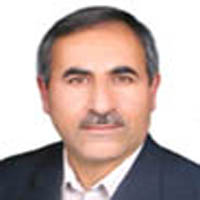The Effects of Field Massage Technique on Bilirubin Level and the Number of Defecations in Preterm Infants
Author(s):
Abstract:
Background
Hyperbilirubinemia is a common physiological problem in approximately 80% of preterm infants during the first week after birth. Increase in bowel movements reduces enterohepatic circulation and increases bilirubin excretion. Aim
This study aimed to evaluate the effects of Field massage technique on bilirubin level and the number of defecations in preterm infants Method
This clinical trial was performed on 80 preterm infants aged 30-36 weeks, who were hospitalized in neonatal intensive care units of Qaem, Imam Reza, and Ommolbanin hospitals of Mashhad, Iran, in 2011. The enrolled infants were randomized into intervention and control groups. The control group received the routine care, and the intervention group received a 15-minute massage twice a day (morning and evening), for five consecutive days. Field massage technique was applied by the researcher. The number of defecations and cutaneous bilirubin level were recorded on a daily basis until the sixth day after birth. Independent t-test and Mann-Whitney U test were performed to analyze the data, using SPSS version 14. Results
The mean age of the intervention and control groups was 17.2±4.5 and 17.1±4.5 hours, respectively. The mean level of cutaneous bilirubin in the intervention and control groups on the first and sixth days were not significantly different (10.7±1.5, 10.8±1.4, 13.4±2.0, and 13.4±2.6, respectively; the first day: P=0.67, the sixth day: P=0.98). The number of defecations on the fourth (P=0.01), fifth (P<0.001), and sixth (P=0.005) days in the intervention group was significantly more than the control group. Implications for Practice: The five-day massage using the field technique could not reduce the level of bilirubin in preterm infants; however, it increased the number of defecations during the bilirubin peak days in preterm infants (fourth-sixth days), which can decrease bilirubin level in preterm infants.Keywords:
Language:
English
Published:
Evidence Based Care, Volume:5 Issue: 4, Winter 2016
Pages:
7 to 16
https://magiran.com/p1482336
مقالات دیگری از این نویسنده (گان)
-
The effect of training program based on self-efficacy model on breast self-examination behavior of health volunteers
Mohammadhossien Delshad, Mohammad Vahedian-Shahroodi, Fahime Pourhaji, , Fatemeh Pourhaji *
Medical Journal of Mashhad University of Medical Sciences, -
Effect of Acupressure on Anxiety in Infertile Women Undergoing in vitro Fertilization/Intra Cytoplasmic Insemination Treatments
T. Khadivzadeh, M. Hassanzadeh Bashtian*, Sh. Badiee Aval, H. Esmaily
Journal of Clinical Care and Skills, Autumn 2021 -
Effect of Music Therapy and Distraction Cards on Anxiety among Hospitalized Children with Chronic Diseases
, Atefeh Soltanifar, Maryam Salari, Seyed Mohsen Asgharinekah, Elahe Izie *
Evidence Based Care, Winter 2020 -
Comparing the Effect of Cooling Gel Pad and Non-Nutritive Sucking on Pain during Hepatitis Vaccination in Newborn Infants: A Randomized Controlled Clinical Trial
Hadi Najafi, Hasan Boskabadi, Maryam Salari, *
Journal of Mazandaran University of Medical Sciences,




